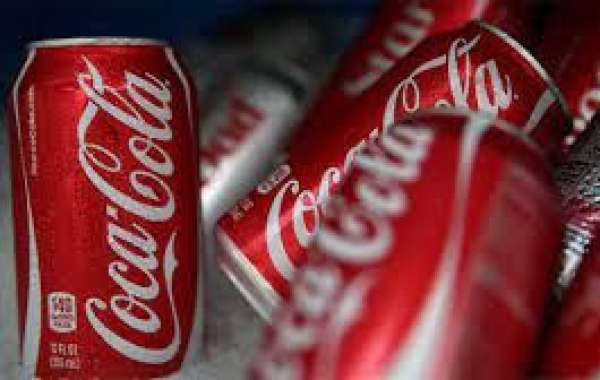Introduction:
Coca-Cola, one of the most iconic and globally recognized brands, has established itself as a leader in the beverage industry. This strategic analysis delves into the key elements of Coca-Cola's business strategy, examining its strengths, weaknesses, opportunities, and threats to provide a comprehensive understanding of the company's position in the market.
Strengths:
Global Brand Recognition: coca cola vision is synonymous with refreshment and quality. The company's commitment to consistent branding has resulted in unparalleled global recognition, making it a beverage of choice in diverse markets.
Product Diversification: Beyond its flagship product, Coca-Cola has successfully diversified its product portfolio to include a wide range of beverages such as Diet Coke, Sprite, Fanta, and non-carbonated options like water and tea. This diversification helps the company appeal to different consumer preferences.
Strong Distribution Network: Coca-Cola's extensive distribution network is a key strength. The company has established strong relationships with bottlers and distributors worldwide, ensuring efficient and widespread availability of its products.
Marketing and Advertising Excellence: coca cola services is renowned for its marketing campaigns that evoke emotions and connect with consumers. The company's strategic use of advertising and sponsorship deals, such as the Olympics and FIFA World Cup, enhances its brand visibility and loyalty.
Weaknesses:
Dependency on Carbonated Beverages: Despite efforts to diversify, coca cola statement heavy reliance on carbonated beverages exposes it to changing consumer preferences for healthier alternatives. The shift towards healthier lifestyles may impact the sales of traditional soda products.
Vulnerability to Economic Fluctuations: As a consumer goods company, Coca-Cola is susceptible to economic downturns. In times of economic uncertainty, consumers may cut back on discretionary spending, impacting the demand for non-essential items like soft drinks.
Opportunities:
Healthy Beverage Trends: The growing trend towards healthier lifestyles provides Coca-Cola with an opportunity to expand its offerings of low-calorie and sugar-free beverages. Acquiring or developing healthier drink alternatives aligns with changing consumer preferences.
Emerging Markets Expansion: Coca-Cola has the potential to further expand its presence in emerging markets. As disposable incomes rise in developing economies, there is an increased demand for beverages, presenting an opportunity for the company to capture new markets.
Strategic Collaborations: Collaborations with health and wellness brands or technology companies can provide Coca-Cola with innovative solutions and market insights. Partnerships could help the company stay ahead in product development and consumer trends.
Threats:
Intense Competition: The beverage industry is highly competitive, with rival companies constantly introducing new products. Coca-Cola faces threats from both traditional competitors and emerging brands, requiring continuous innovation to maintain its market share.
Regulatory Challenges: Increased scrutiny on sugar content and environmental concerns related to packaging pose regulatory challenges for Coca-Cola. Adapting to changing regulations while maintaining profitability is a constant balancing act for the company.
Water Scarcity and Environmental Impact: Coca-Cola's production processes and the use of water as a key ingredient expose the company to environmental concerns, particularly in regions facing water scarcity. Sustainable practices and responsible sourcing are critical to mitigate these threats.
Conclusion:
Coca-Cola's strategic analysis reveals a company that has successfully navigated the challenges of a dynamic market for decades. By leveraging its strengths, addressing weaknesses, exploring new opportunities, and mitigating threats, Coca-Cola remains a formidable force in the global beverage industry. Strategic adaptability and a commitment to innovation will be crucial for the company to sustain its leadership position in the ever-evolving consumer landscape.








